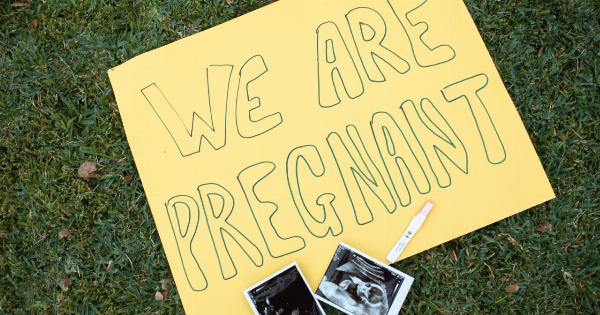Discovering that you are pregnant can be an incredibly exciting and life-changing moment. Whether you are planning for a pregnancy or it comes as a surprise, knowing when to take a pregnancy test is crucial for accurate results.
Understanding the timing and factors that can influence the accuracy of a pregnancy test can help you make informed decisions about your reproductive health. In this article, we will explore the importance of pregnancy test timing and what you need to know.
What is a Pregnancy Test?
A pregnancy test is a simple and convenient way to determine if you are pregnant. It detects the presence of a hormone called human chorionic gonadotropin (hCG) in your body, which is produced during pregnancy.
Home pregnancy tests are widely available and can be purchased over-the-counter at pharmacies and grocery stores.
When Should You Take a Pregnancy Test?
The timing of a pregnancy test is crucial to get accurate results. The accuracy of a pregnancy test depends on the levels of hCG in your body, which increase as your pregnancy progresses.
Testing too early may result in a false negative, as the hCG levels may not be high enough to be detected by the test.
Missed Period
One of the most common signs of pregnancy is a missed period. If you have regular menstrual cycles, a missed period can be a strong indication that you may be pregnant.
However, it is important to note that other factors, such as stress or hormonal imbalances, can also cause a missed period. If you have missed your period and suspect that you may be pregnant, it is recommended to take a pregnancy test.
Early Morning Urine
Taking a pregnancy test with the first urine of the day is often recommended for increased accuracy. This is because the concentration of hCG is usually higher in the morning urine.
By using the first urine sample, you can maximize the chances of detecting hCG if you are pregnant.
Timing After Conception
It is important to understand that pregnancy tests do not detect the moment of conception. After fertilization, it takes about six to twelve days for the fertilized egg to implant in the uterus and for hCG to be produced.
Therefore, it is recommended to wait at least one week after a missed period to take a pregnancy test for reliable results.
Types of Pregnancy Tests
There are two main types of pregnancy tests available: urine tests and blood tests. Urine tests are the most commonly used and can be done at home. These tests are affordable, convenient, and provide results within minutes.
Blood tests, on the other hand, are performed at a healthcare provider’s office and can detect pregnancy earlier than urine tests. Blood tests can detect hCG levels as early as 6-8 days after ovulation.
Factors that Can Affect Test Accuracy
While pregnancy tests are highly accurate when used correctly, several factors can influence their accuracy:.
- Using an expired or faulty test: It is essential to check the expiration date of the test and ensure that it has not been damaged.
- Not following the instructions: Each pregnancy test comes with specific instructions that should be followed carefully for accurate results.
- Testing too early: Testing before your missed period or too soon after conception can result in a false negative.
- Medications: Certain medications, such as fertility drugs or medications containing hCG, can interfere with the test results.
What to Do After a Positive Test?
If your pregnancy test shows a positive result, it is essential to consult with a healthcare professional to confirm the pregnancy. They will be able to provide proper prenatal care recommendations and guide you through the next steps.
When to Retake a Pregnancy Test?
If you receive a negative result on a pregnancy test but still suspect that you may be pregnant due to persistent symptoms or a missed period, it is recommended to retake the test after a few days.
Waiting a few days allows for the hCG levels to rise if you are indeed pregnant, increasing the test’s accuracy.
Conclusion
Knowing the right timing for a pregnancy test is crucial for accurate results. While a missed period can be an indication of pregnancy, taking a test too early can lead to false negatives.
Utilizing the first urine sample of the day and waiting at least one week after a missed period can provide reliable results. Understanding the factors that can affect test accuracy and the different types of pregnancy tests available can help you make informed decisions about your reproductive health.
Remember, if you receive a positive result on a pregnancy test, consulting with a healthcare professional is essential for confirmation and further guidance.





















